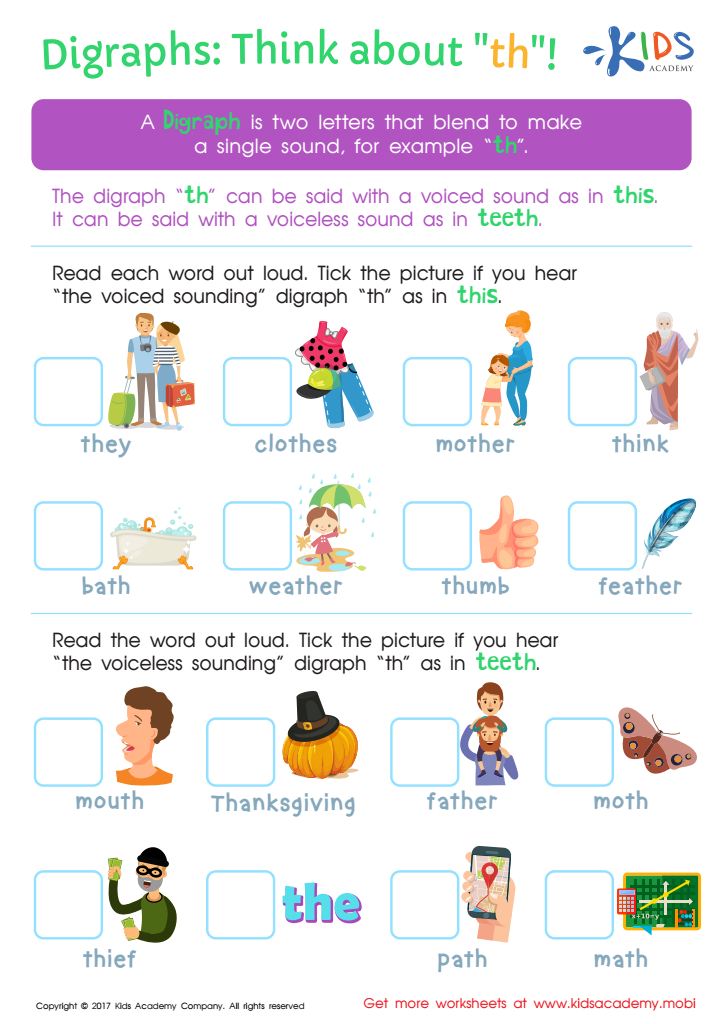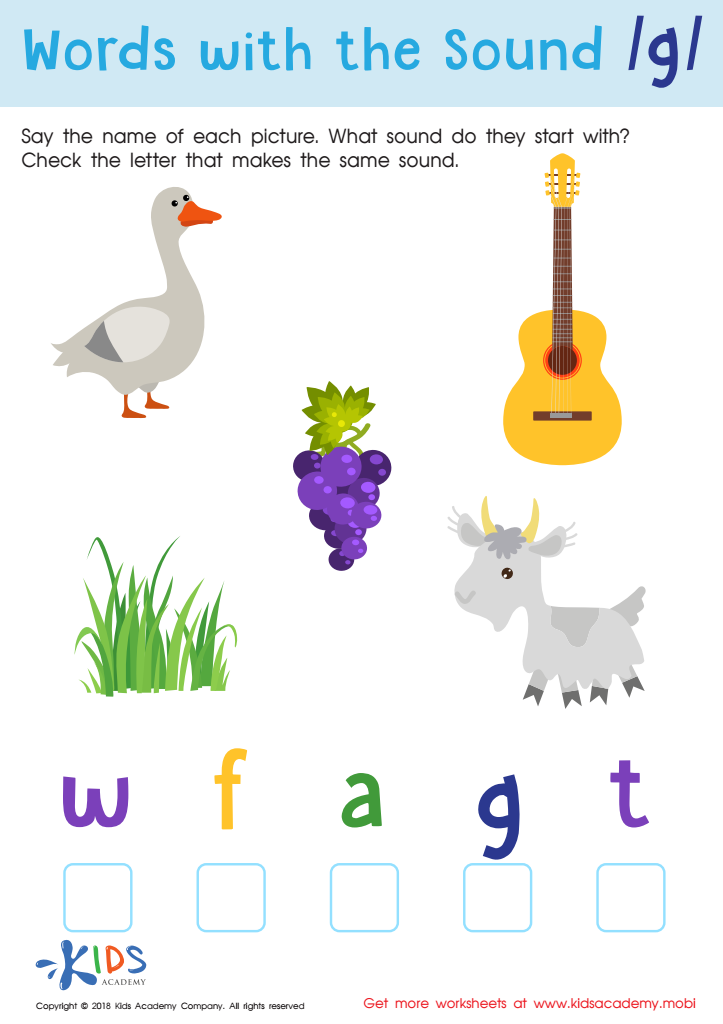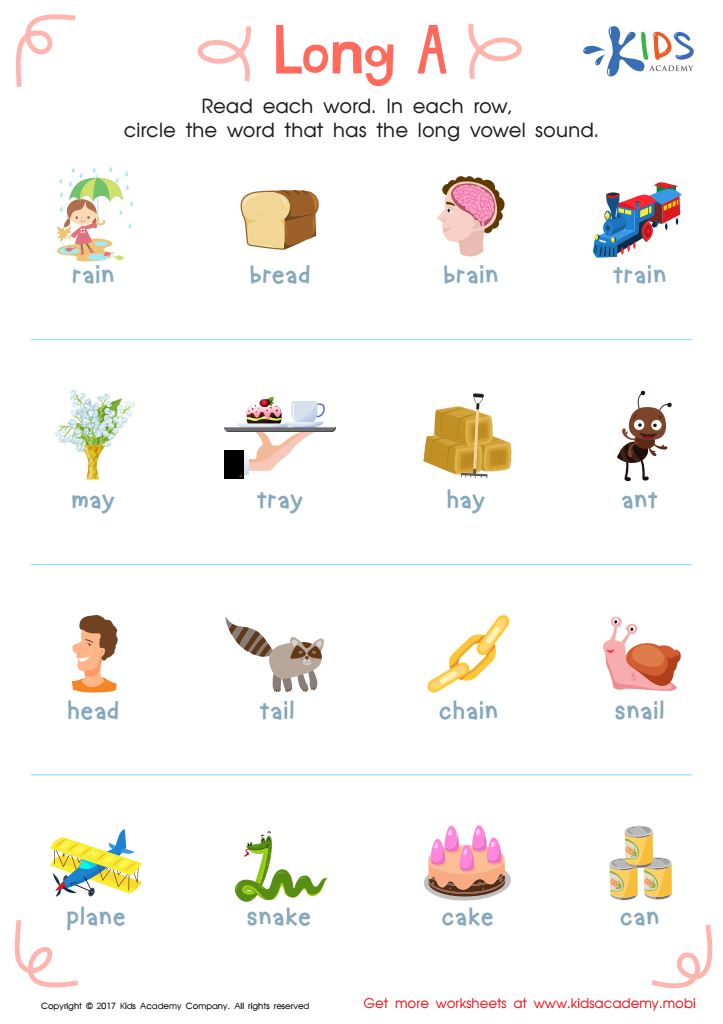Reading practice Phonics Worksheets for Ages 6-9
3 filtered results
-
From - To
Discover engaging and educational Reading Practice Phonics Worksheets tailored for children ages 6-9! Our resources focus on enhancing early literacy skills through fun and interactive activities that promote phonetic awareness and reading fluency. Each worksheet is designed to captivate young learners with colorful illustrations and age-appropriate exercises, making reading exciting! Perfect for homeschoolers and classroom settings alike, these phonics worksheets encourage children to identify sounds, blend words, and improve comprehension. Help your child build a solid foundation for reading success with our comprehensive selection of phonics worksheets. Start your literacy journey today and watch young readers thrive!


Digraphs: Think About "th" Worksheet


Words with sound g Reading Worksheet
Reading practice through phonics is critical for children aged 6-9 as it provides the foundation for their literacy development. At this stage, children are transitioning from learning to read to reading to learn. Phonics instruction helps them understand the relationship between sounds and letters, which enhances their ability to decode words quickly and accurately. This skill is essential for building vocabulary, comprehension, and overall reading fluency.
Moreover, strong phonics skills boost children's confidence as readers, making them more inclined to engage with texts and explore different genres. When children can sound out words independently, they are more likely to enjoy reading and find pleasure in storytelling, leading to a lifelong love of literature.
Additionally, many standardized assessments and future academic success rely on reading proficiency. Teachers and parents who prioritize phonics practices set their children up for success not just in reading, but across all subjects.
In an ever-more literate world, understanding and mastering phonics equips children with critical thinking and communication tools, essential for their social and academic development. Investing time in reading practice and phonics not only fosters essential skills but also creates a nurturing environment where children can thrive as eager learners.

 Assign to My Students
Assign to My Students





















